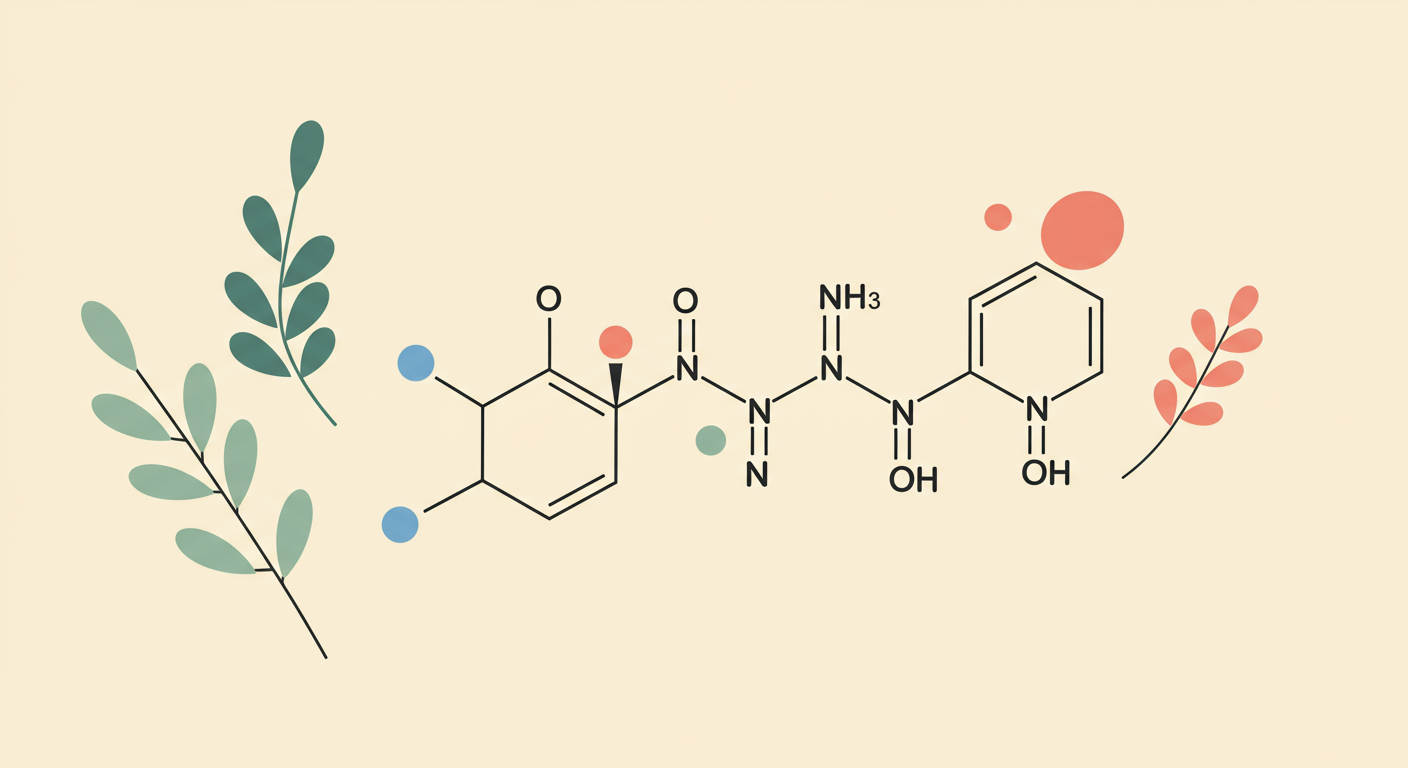More Than a Buzz: How Taurine Supports Muscle Recovery and Endurance
More Than a Buzz: How Taurine Supports Muscle Recovery and Endurance

Unlocking Your Athletic Potential with Taurine
If you've ever glanced at the ingredients on an energy drink, you've seen the word 'taurine.' It's easy to dismiss it as just another stimulant, but that couldn't be further from the truth. As a performance-focused enthusiast, I used to think the same thing. It wasn't until I dug into the research that I realized taurine is one of the most underrated supplements for anyone serious about training. It’s not about a synthetic 'buzz'; it's about fundamental cellular support that translates to real-world gains in the gym and on the track.
This article cuts through the noise to give you the evidence-based breakdown of what taurine actually does for your body. We'll explore how this unique amino acid can help you push harder, last longer, and bounce back faster.
Here’s what we’ll cover:
- What Taurine Really Is: Understanding its unique role beyond building protein.
- The Cellular Mechanisms: How taurine supports muscle function, hydration, and antioxidant defense.
- Endurance and Performance: The scientific evidence for taurine's ability to improve aerobic capacity.
- Recovery and Muscle Soreness: How it helps reduce muscle damage and get you back to training sooner.
- Safe and Effective Dosing: Practical guidelines for incorporating taurine into your routine.

What Is Taurine, and Why Should Athletes Care?
Taurine is a conditionally essential amino acid. Unlike most amino acids, it's not used to build proteins. Instead, it plays a critical role in a wide range of physiological processes. Think of it less like a brick and more like the foreman on a construction site, directing traffic and ensuring everything runs smoothly.
It's one of the most abundant amino acids in the body, with high concentrations found exactly where athletes need it most: skeletal muscle, the heart, and the central nervous system. Its presence in these tissues is a huge clue to its importance for physical performance. When your body is under stress—like during intense exercise—your natural production of taurine might not be enough to meet the demand, which is why supplementation can be so effective.kurtz-2021
What does 'Conditionally Essential' mean?
It means your body can typically produce enough on its own. However, during periods of high stress, illness, or intense physical exertion, your body's demand for taurine may exceed its ability to produce it. In these 'conditions,' getting it from diet or supplements becomes essential for optimal function.
The Science: How Taurine Fuels Muscle Function
Taurine's benefits aren't magic; they are rooted in its fundamental roles at the cellular level. I've personally felt the difference during long runs and heavy lifting sessions, and the science explains why. It works through several key mechanisms that directly impact muscle performance and health.
Cell Hydration and Electrolyte Balance
Proper hydration is more than just drinking water. Your cells need to maintain the right balance of fluid and electrolytes to function. Taurine is a potent 'osmolyte,' which means it helps regulate fluid balance within cells. By drawing water into muscle cells, it supports optimal hydration, which is crucial for staving off cramps, maintaining strength, and ensuring proper cell signaling. Think of it as helping your muscles stay plump and ready for action.schaffer-2018
Antioxidant Defense System
Intense exercise is a form of stress that creates metabolic byproducts, including reactive oxygen species (ROS), also known as free radicals. While some ROS are necessary, excessive amounts lead to oxidative stress, damaging cells and contributing to fatigue and muscle soreness. Taurine acts as a powerful antioxidant, helping to neutralize these harmful compounds. This protection helps preserve muscle integrity and reduce the cellular damage that occurs during and after a tough workout.wen-2019
Calcium Regulation for Powerful Contractions
Every time your muscles contract, it's driven by the precise movement of calcium ions. Taurine plays a vital role in managing calcium within muscle cells. It helps the sarcoplasmic reticulum—the cell's calcium storage tank—to store and release calcium more effectively. This leads to more efficient and powerful muscle contractions, which is the very foundation of strength and endurance.kurtz-2021

The Proof: Pushing Endurance and Delaying Fatigue
The cellular benefits of taurine directly translate to improved athletic performance, especially in endurance activities. I first experimented with taurine to see if I could improve my 5k times, and the research backs up my positive experience. A meta-analysis published in Sports Medicine reviewed multiple studies and found that taurine supplementation, in doses ranging from 1 to 6 grams, significantly improved overall endurance performance.waldron-2018
One specific study highlighted this effect in trained runners. The athletes who took a 1,000 mg dose of taurine before a 3-km time trial improved their performance by an average of 1.7% without any significant changes in heart rate or oxygen uptake. That might not sound like much, but in a competitive setting, it's a huge edge. Researchers believe this is due to taurine's ability to enhance fat metabolism for fuel and improve the efficiency of muscle contractions, allowing you to work harder for longer before hitting a wall.balshaw-2013
Personal Tip: Timing Your Taurine
For a noticeable boost in endurance, I've found taking 1-2 grams of taurine about 60 to 90 minutes before a workout is the sweet spot. This gives it enough time to be absorbed and ready to go to work in your muscles when you need it most.
Bouncing Back Faster: Taurine's Role in Muscle Recovery
One of the most compelling reasons for an athlete to consider taurine is its impact on recovery. Nothing stalls progress like excessive muscle soreness, also known as Delayed Onset Muscle Soreness (DOMS). This is where taurine's antioxidant and cell-protective properties really shine. By mitigating muscle damage during exercise, it can significantly reduce the soreness you feel in the days following a workout.
A study published in Applied Physiology, Nutrition, and Metabolism found that participants who supplemented with taurine before and after eccentric exercise (the muscle-damaging portion of a lift) had lower markers of muscle damage, like creatine kinase, and reported less soreness compared to a placebo group. This means you're not just feeling better; you're experiencing objectively less damage, which allows your body to repair and adapt more quickly. For me, this has meant being able to approach my next training session feeling fresher and more prepared.dasilva-2014
Dosage and Safety: The Right Way to Use Taurine
Taurine is naturally found in foods like meat, fish, and dairy, but the amounts are often too small to provide a significant performance benefit. For athletic purposes, supplementation is the most practical approach.
Research has shown that doses between 1 and 3 grams per day are both effective and safe for long-term use. A comprehensive risk assessment concluded that this level is well-tolerated with no adverse effects. Some endurance studies have used up to 6 grams pre-exercise, but for general training and recovery, sticking to the 1-3 gram range is a solid, evidence-backed strategy. As with any new supplement, it's always wise to start with a lower dose to see how your body responds.shao-2008waldron-2018
Frequently Asked Questions
Yes, it's the same molecule. However, in energy drinks, it's often paired with high amounts of caffeine, sugar, and other stimulants. For purely athletic benefits, a standalone taurine powder or capsule is a much better choice as it allows you to get an effective dose without the unwanted additives.
If you eat a diet rich in meat and seafood, you do get a baseline level of taurine. However, the amounts used in studies to demonstrate performance and recovery benefits (1-3 grams) are difficult to achieve through diet alone. Vegans and vegetarians produce taurine but consume very little, making supplementation potentially more important for them.
Taurine is considered very safe and is generally well-tolerated. At the recommended doses of 1-3 grams per day, side effects are extremely rare. Exceedingly high doses may cause digestive upset in some individuals.
There is no current scientific evidence to suggest that taurine needs to be cycled. The body does not appear to down-regulate its own production or receptors in response to supplementation, making it suitable for continuous daily use.
Summary: Your Actionable Takeaways
Taurine is far more than an energy drink additive. It’s a scientifically-backed tool for athletes looking to optimize performance and accelerate recovery. It works by supporting fundamental cellular processes that are critical for muscle function.
- Enhances Endurance: Helps you go longer by improving muscle contraction efficiency and energy metabolism.
- Reduces Muscle Soreness: Acts as an antioxidant to protect muscles from exercise-induced damage, leading to faster recovery.
- Supports Hydration: Functions as an osmolyte to maintain proper fluid balance within your cells.
Here’s how to put it into practice:
- Consider Supplementing: Add 1-3 grams of taurine to your daily routine for consistent benefits.
- Time It Right: Take it 60-90 minutes before training for performance enhancement or include it in your post-workout shake for recovery support.
- Stay Consistent: Like most supplements, the benefits of taurine, especially for recovery, compound over time with consistent use.
Sources
- Taurine in sports and exercise (2021) — link [Journal Article]
kurtz-2021 - Effects of taurine supplementation following eccentric exercise in young adults (2014) — link [Journal Article]
dasilva-2014 - The effect of acute taurine ingestion on 3-km running performance in trained middle-distance runners (2013) — link [Journal Article]
balshaw-2013 - The effects of an oral taurine dose and supplementation period on endurance exercise performance in humans: a meta-analysis (2018) — link [Journal Article]
waldron-2018 - Effects and Mechanisms of Taurine as a Therapeutic Agent (2018) — link [Journal Article]
schaffer-2018 - Taurine is Involved in Energy Metabolism in Muscles, Adipose Tissue, and the Liver (2019) — link [Journal Article]
wen-2019 - Risk assessment for the amino acids taurine, L-glutamine and L-arginine (2008) — link [Journal Article]
shao-2008